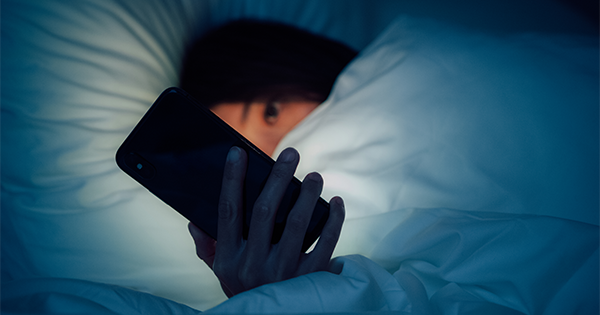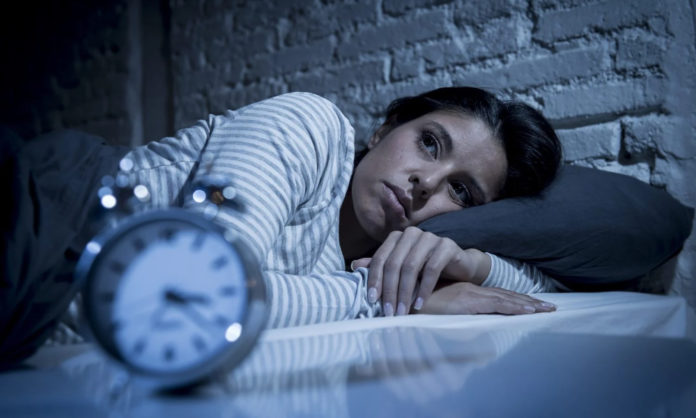People who suffer from anxiety disorders have problems falling asleep, and at some point, it can be difficult to distinguish between anxiety and sleeplessness. The reply can be both. The truth is that stress and anxiety can either start new sleeping issues or exacerbate old ones. Your mood is impacted by sleep deprivation, which can lead to irritation and occasionally despair. Here are some pointers to assist you in maintaining proper “sleep hygiene” so you may relax your body and mind:
-
Be punctual
Even on weekends, go to bed and get up at the same time every day.
-
Try relaxation strategies
Be aware. Try a relaxation technique that includes mindfulness, deep breathing, or meditation just before bedtime. These techniques all lengthen and improve the quality of your sleep.
-
Avoid screen time before bed

Early screen termination Avoid using digital gadgets before night because the blue light they emit—including TVs, phones, laptops, and tablets—can disrupt your body’s natural schedule. Choosing a tech-free activity to relax can reduce stress.
-
Warm showers do the trick
Take a hot shower or bath to unwind. Your body temperature will decrease as you transition from a warm bath to a cool bedroom, which will naturally make you feel drowsy.
-
Count sheep
Sheep count. Although it may seem absurd, it actually works. Because maintaining mental focus on a single task allows you to wind down, this is the reason. Until you feel more at ease, you can try concentrating on your breathing and deliberately taking deep breaths in and out.
-
Check your diet
For many hours prior to going to bed, stay away from caffeine, alcohol, heavy meals, foods that cause heartburn, and drinking a lot of liquids.
-
Regular Exercising

Exercise consistently. Exercise is a fantastic way to reduce stress and has been proven to enhance sleep, especially for those who struggle with insomnia. But watch out for scheduling your more strenuous workouts too close to bedtime. Try to work out at least three hours before going to bed.
-
Shift your mind or worry earlier
Try to avoid worrying at night. It can be very difficult to drift off when your mind is racing with worries while you try to go to sleep. Set aside 15 minutes each day to process these ideas. Making a to-do list or formulating solutions can help you manage stress and keep it from disrupting your sleep later.
-
Herbal tea helps

Drink some herbal tea. The body can be soothed and relaxed by chamomile and other herbal drinks, which can facilitate falling asleep. Make it a mini-routine to conclude your night by combining it with a nice book.
-
Don’t just keep lying down in the bed
Get out of bed and do something soothing till you feel tired, like that cup of tea and a book, if you are still having difficulties falling asleep after 20 minutes of turning out the lights (or if you wake up and can’t fall back to sleep after 20 minutes).
Stay tuned to Brandsynario for the latest news and updates.





































